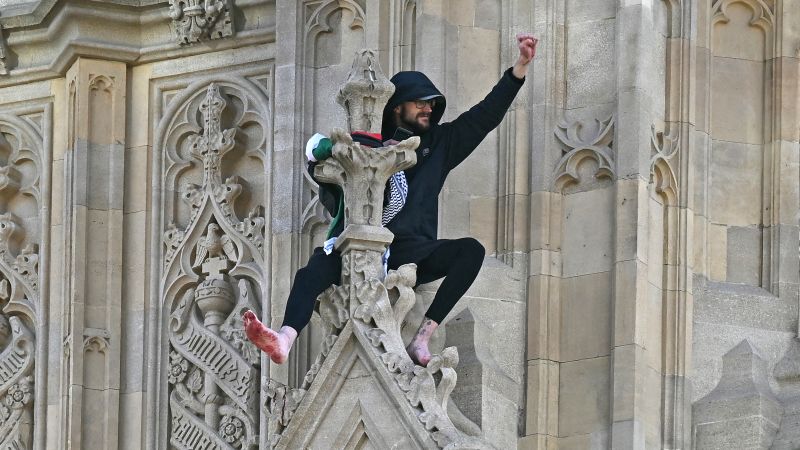Madison’s public golf courses broke records this year thanks to a short winter and a pandemic-related spike in interest, city officials said.
The number of rounds played at city-owned courses was the highest it’s been since at least the early 1990s, said Dave Vetrovec, golf director for the city’s Parks Division. Parks officials reported nearly 160,000 rounds had been played, resulting in a record revenue of around $5.5 million.
The city operates four golf courses — The Glen, Monona, Odana Hills and Yahara Hills — where for around $20-$30 for a 9-hole round anyone can play. This year, the weather favored golfers, with city courses opening on Feb. 25, the earliest opening date on record, Vetrovec said.
Interest has been trending up since the COVID-19 pandemic began, he said.
“We think a number of folks either found or reconnected to the game during this time when being outside and distanced was needed,” Vetrovec said.
Sue Shapcott has been teaching golf in Madison for about 10 years. Her company, Change Golf Instruction, contracts with the city to provide all its golf lessons, which often serve those who are newer to the sport.
Shapcott said interest has continued to grow in the years since the pandemic as people who’ve taken up golfing in recent years start to get their friends interested, too. In 2022, 107 novices signed up for lessons. This year, that number was 209.
“So we’ve basically doubled how many people were introducing the game at city courses,” said Shapcott, who has a doctorate in education from the University of Bath.
The total number of golf lesson appointments increased 11% from 2022.
“Now we’re kind of getting that compounding effect,” Shapcott said. “It’s starting to grow exponentially.”
She hopes the more people get lessons, the more people will play rounds at city courses in the future.
‘We aren’t out of the woods yet’
The city’s golf program operates as an “enterprise,” meaning it’s supposed to be self-sustaining. But its revenue has fluctuated over the years as local interest in golf waxed and waned.
In 2012, the city opted not to renew contracts for several golf professionals hired to teach lessons. Four of the pros successfully sued the city for failing to show good cause, costing Madison a total of $1.2 million.
Eight years later, the city convened a task force to consider closing part or all of some courses or changing the program’s business model. At the time, the Cap Times reported the courses hadn’t been profitable in back-to-back years since 2001-2002.
The golf program’s finances are far better today, Vetrovec said, but the courses, clubhouses and parking lots need millions of dollars of improvements.
“We aren’t out of the woods yet,” he said. “More reinvestment is needed than we currently have the ability to finance. It will take a few more years of positive results to feel good about saying the outlook is solid.”
“We are hopeful we can sustain a solid level of demand at our courses through focusing on good value for players, reinvestment into the courses and emphasizing customer service,” he added.
Without additional funding, “we would still find a way to provide golf,” he said, noting the city had done so in difficult years in the past.
“But the backlog of deferred capital investment into the courses will eventually catch up,” he said. “Ultimately, not investing in the courses will lead to their failure as both a recreational amenity and as an enterprise.”
The city will reduce the number of holes at its courses from 72 to 54 by the beginning of the 2026 season, Vetrovec said. That’s because the Parks Division sold around 200 acres of the Yahara Hills course to Dane County, which plans to build its new landfill and “sustainability campus” there.
The Yahara Hills course is currently being renovated from 36 holes to 18 holes. Funds from the $5.5 million deal are meant to be available for maintaining city golf courses in the future.
Golfers play Odana Hills in Madison in this 2018 photo.
Golf on the upswing across U.S.
Golf’s popularity is up across the country, according to a report this year by the National Golf Foundation. The number of people who played rounds on a course rose about 10% from 2018 to 2024. Young adults fueled that increase, making up the largest group of on-course players.
Shapcott, who also leads the research division of a golf business strategy group called Gather, watches those industry trends.
“All of the signs are that the golf market is projected to be strong, as long as nothing crazy happens,” Shapcott said. “There’s no reason to think things will slow down.”
In Madison, she pointed to the growing number of businesses featuring golf simulators, including Blind Shot Social Club in Madison’s Atwood neighborhood, where customers play indoor rounds by hitting a ball at a screen.
The three-story PinSeekers driving range along Interstate 90 in DeForest opened last year with 60 driving bays. In 2026, competitor Topgolf plans to open a 36,000-square-foot complex of its own between WPS Health Solutions and South Towne Mall in Monona.
Shapcott said those places will only get more Madisonians interested in golf.
“Their next stop after that is going to be, probably, a public golf course,” she said. “So I think it can only be a good thing for the city of Madison.”
Shapcott knows many people wonder whether golf courses are a good use of public lands. While many think golf is an elitist sport, she said that’s not the full picture. She regularly teaches people who’ve recently retired, moved to town or lost a loved one. They’re looking for a place to exercise and find community. Many are older and unable to use bike paths or basketball courts.
“Unfortunately, golf does have a bad reputation,” Shapcott said. “If you can look beyond that, it really does serve a purpose for many communities in Madison.”












